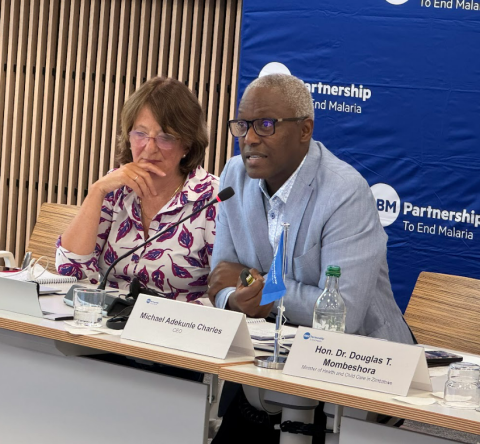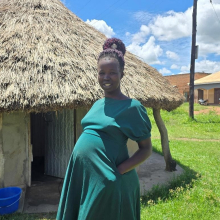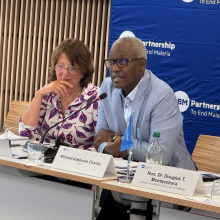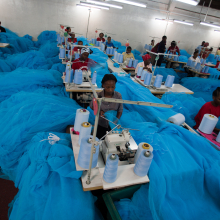Day 1, 33rd Annual RBM Board meeting statement
Yesterday, the RBM Partnership to end malaria kicked off its 33rd Board Meeting, continuing in the tradition of accountability, transparency, bold conversations and actions to eliminate malaria. Conversations opened with addresses from Ministerial Malaria Champions who were appointed during the recent World Health Assembly.
Equatorial Guinea Minister of Health, Hon Mitoha Ondo’o Ayekaba shared how the country is navigating a complex funding landscape to continue providing both traditional and new innovative malaria interventions.
In the face of reduced resources and threats to malaria gains, Equatorial Guinea has launched the Ambition 2030 Malaria Elimination Plan to safeguard progress and confront challenges. The country has also partnered with the private sector to try and close the funding gap, ensuring that:
- Vaccination of children against malaria continues
- Families receive insecticide treated bed nets
- Innovative drones that detect and destroy mosquito larvae are employed
- The piloting of Genetically Modified mosquitoes as a vector control measure continues
In line with the Yaoundé Declaration, 80 percent of the country’s malaria measures are in high-risk areas, highlighting dedication to implementing international and regional malaria commitments.
“Reduced funding to malaria in Equatorial Guinea threatened the bed net campaign for 200,000 homes and seasonal chemo prevention for 120,000 children. These are not just numbers but lives that remain at risk if we do not unite and innovate to close the malaria funding gap,” Hon Ayekaba said.
The Zimbabwe Minister of Health and Child Care, Hon Dr Douglas Mombeshora represented the Southern African Development Community (SADC) and called for greater unity and better coordination to promote country and regional-led solutions to malaria under the Big Push framework. He described the malaria response as a litmus test for health system resilience and stated,
“Centring the country and regional perspective in the fight against malaria is not just commendable but essential. Malaria gains are fragile and must be preserved by continuous investment. Even in crisis there is opportunity – opportunity for better coordination, regionally-led and country-owned solutions.”
RBM Board Members thanked the Ministers for their continued commitment, recognizing that African countries have continued to apply the limited resources they have to the fight against malaria.
“The fight against malaria relies on countries’ commitment to prioritise malaria elimination. We know that it is not easy, but we appreciate that you continue trying to mobilise the little resources you have to save lives,” Daniel Ngamije, Director of the WHO Global Health Programme and RBM Board Member said.
Renowned musician and RBM Board Member, Yvonne Chaka Chaka noted that in the face of reduced international aid, African countries have committed to transparency and accountability – important steps in safeguarding the limited malaria resources.
“Countries are taking responsibility. They have shown self-reliance and resilience. They are determined to start doing things for themselves. This makes me optimistic that we can end malaria.”

Latest Blogs



